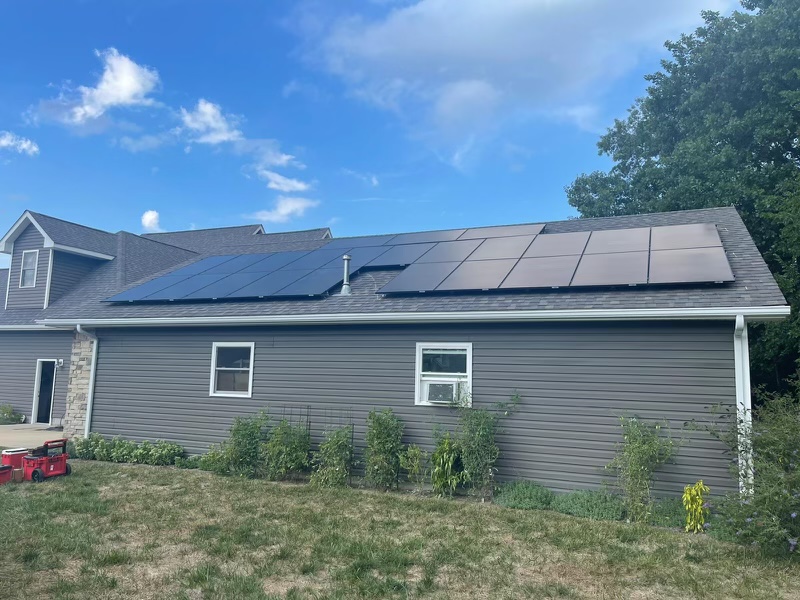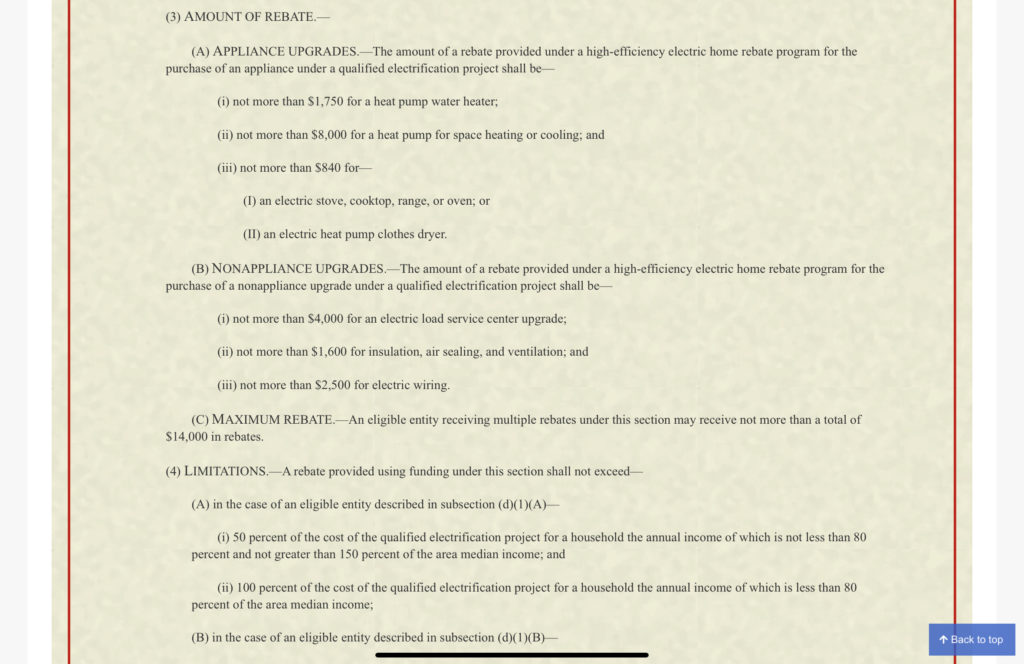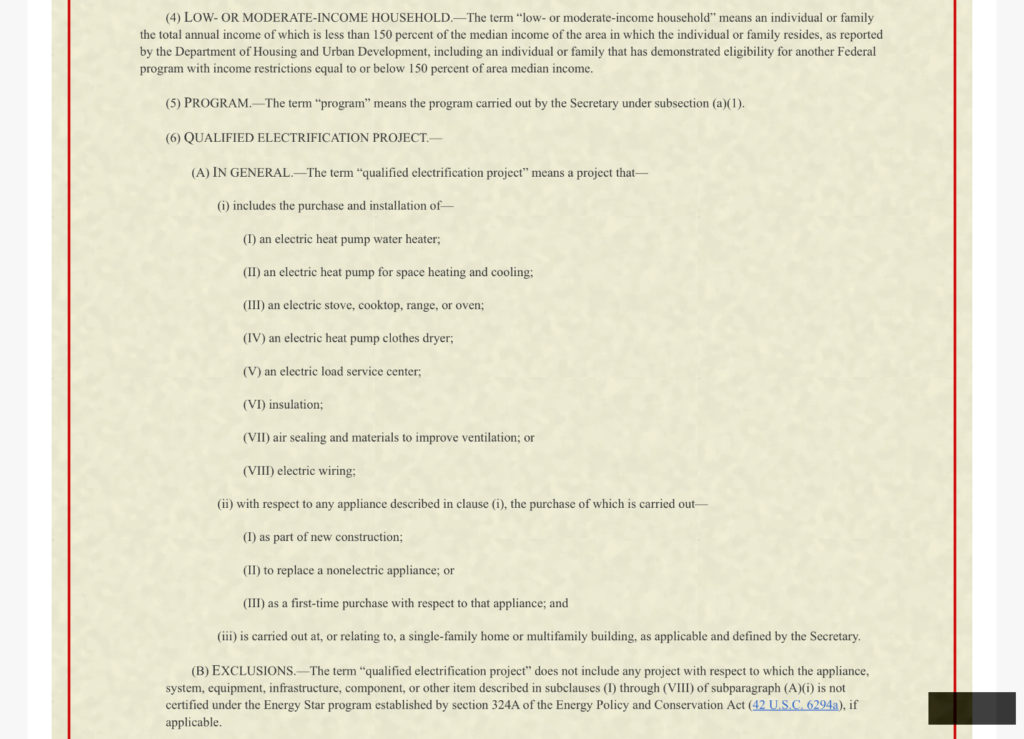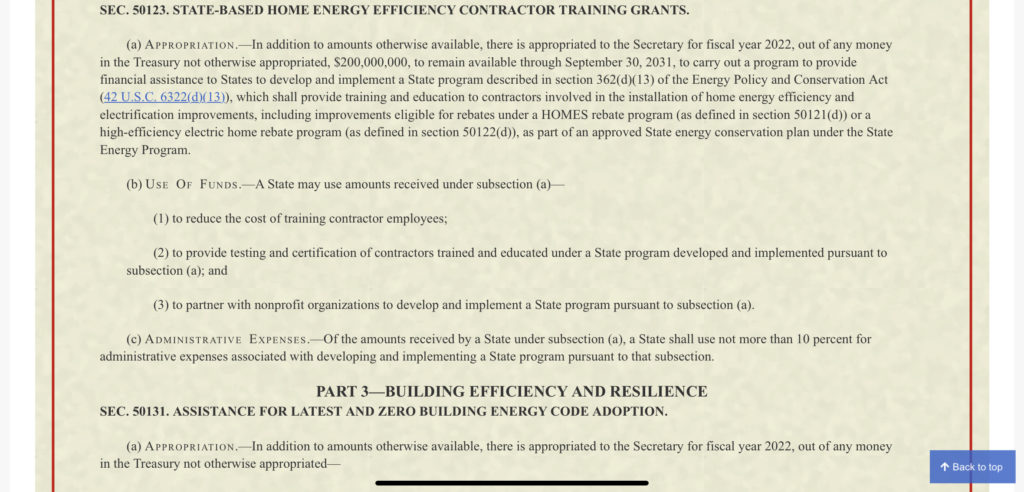The Inflation Reduction Act and How it Pertains to Solar Energy
Are you curious about which programs within the new Inflation Reduction Act are beneficial for you and your home? So are we! There are many articles to read through, including the act itself, but that can be a lot to sift through. If you are like us, then the energy efficiency and money saving potential is what you would like to learn about. Thats why we have reviewed the bill and relevant articles to figure out what the facts are and what others are learning and saying.
Big Picture of The Inflation Reduction Act
Why is this important? Many changes will be necessary for homeowners, namely the technology we use and how we power it. Renewable energy will be more practical if we make sure appliances are as efficient as possible. Also, as natural gas phases out, more people will shift from gas stoves to electric. The Inflation Reduction Act introduces rebates to help you make that switch. With this financial support, many homeowners can afford to switch appliances to electric. Then tax credits reduce the cost of a solar system that provides all the needed electricity in a home.
This paves the way for financial security and reducing our strain on resources. One key to being more self sufficient is to reduce your energy demand. You could try to live without as many appliances, but thankfully there are going to be discounted higher efficiency versions of many things. People use the most energy for heating and cooling. Upgrading heating and cooling technologies can ensure more comfort for less cost. It makes sense to have all your appliances be electric and efficient. It means you wont need to worry about generating a lot of power for your home.

Increased Solar Credits
One of the main reasons Sustainable Solutions Advisors is interested in the new Act is that it enables us to continue serving homeowners. The Solar Investment Tax Credit has been able to keep solar within reach of homeowners because it lowers the total cost of the system.
It does so by reducing how much you owe in federal taxes. That way you can use money that would otherwise be removed from your earnings and gone forever. You can then use that money towards the system cost once you do your taxes. The tax credit was at 26% before the Act was signed and destined to drop to 22% for a year then go away. Now the new tax credit is 30% until 2032, then it goes back to 26% in 2033, 22% in 2034, and phases out completely after that.
Below is a snippet from the summary portion of the Inflation Reduction Act. It includes a statement about the increase of the Solar Investment Tax credit and which section of the Act to get more info.
“(Sec. 13302) The act extends through 2034 the tax credit for residential clean energy, modifies the phaseout for such credit, and extends the credit to include qualified battery storage technology expenditures”.
We know that solar isn’t going away as it’s been in a stage of extreme growth. However, if the tax credit goes away, then people will have to pay full price for systems and the potential to save money will be limited to very few. Now we can continue to help the majority of homeowners learn about and transition to renewable energy.
Energy Rebates in The Inflation Reduction Act
In addition to tax credits, there are rebates for energy efficient upgrades within your home. This is different from a credit in that it’s not based on tax liability and helps you get money back for qualified purchases. From what we have gathered from the bill, it may take some time for these rebates to be sorted out per state. Only certain products with correct specifications can be rebated. Most of the info that pertains to this can be found in sections 50121-50123 in the Inflation Reduction Act.

What Is Covered By Rebates?
To fully benefit from this bill, first you would need to know which appliance upgrades make sense in your home. After making your home more energy efficient, you will be able to offset the majority, if not all, of your energy needs with solar panels. The Act allows up to $14,000 in rebates plus whatever upgrades can get you tax credits, like solar panels and new windows. This bill will make solar power even more accessible because many people want solar but use a lot of power.
If you can reduce how much energy your home uses, then you will need fewer solar panels to power your home. Therefore it’s a lower cost to make the switch. It’s already doable, but this can make it even easier for people.

The Top of this image explains what income group qualifies for these incentives.
Economic Stimulation and Industry Partnerships
We at Sustainable Solutions Advisors actively work to utilize current technologies and policies. We find the fullest potential to maximize savings as well as benefit those we work with. Although no bill is perfect, we utilize incentives to help people the best way possible. Including other businesses with the right intentions. We already have some great partnerships. If you have any ideas for connecting solutions and technologies please let us know. After all, who doesn’t love supporting local. There are ways we can use this bill to create jobs that create positive change.
For instance, we can provide a free solar consultation and are able to calculate the potential energy savings of your home. Then, if choose to make any upgrades, we determine how many solar panels you may need. We collaborate with small and local businesses to connect you with their energy efficiency products and make it so you don’t have to speak to a bunch of different people to get all your questions answered.
New training and certification standards will be put in place for contractors to be able to offer these rebates through their businesses. We at Sustainable Solutions Advisors will be paying close attention to which contractors and technologies qualify for rebates.

Additional Promising Opportunities
There are some additional promising opportunities from the Inflation Reduction Act. There is funding to find and label construction materials with the lowest carbon footprint, and the use of these materials will be subsidized for construction and contractors. If you own a home improvement business, reach out so we can provide more sustainable solutions to the people.

How To Learn More
If you want to get started, book a free solar consultation with us at Sustainable Solutions Advisors. Although some rebates need some time to be figured out, the 30% tax credit is active this year. Getting a solar system installed this year allows you to get the tax credit this coming tax season. Click here to book an appointment.
